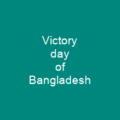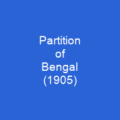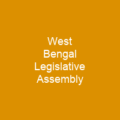Bangladesh, officially the People’s Republic of Bangladesh, is a country in South Asia. It is the eighth-most populous country in the world, with a population exceeding 164 million people. Bangladesh shares land borders with India to the west, north, and east, Myanmar to the southeast, and the Bay of Bengal to the south. The constitution declares Bangladesh a secular state, while establishing Islam as a state religion.
About Bangladesh in brief
 Bangladesh, officially the People’s Republic of Bangladesh, is a country in South Asia. It is the eighth-most populous country in the world, with a population exceeding 164 million people. In terms of landmass, Bangladesh ranks 92nd, spanning 148,460 square kilometres. Dhaka, the capital and largest city, is the nation’s economic, political and cultural hub. Bangladesh shares land borders with India to the west, north, and east, Myanmar to the southeast, and the Bay of Bengal to the south. The borders of modern Bangladesh were established with the partition of Bengal in August 1947 at the time of partition of India. The constitution declares Bangladesh a secular state, while establishing Islam as a state religion. The country is divided into eight administrative divisions and sixty-four districts. The Bengalis make up 98% of the total population of Bangladesh. The large Muslim population makes it the third-largest Muslim-majority country. Bangladesh is a unitary parliamentary democracy and constitutional republic following the Westminster system of governance. Although the country continues to face the challenges of the Rohingya refugee crisis, corruption and the adverse effects of climate change, Bangladesh is one of the emerging and growth-leading economies of the world. The origin of the word Bangla is unknown, though it is believed to come from an ancient kingdom and geopolitical division on the Ganges delta in the Indian subcontinent. It was also a Mauryan province under the reign of Ashoka.
Bangladesh, officially the People’s Republic of Bangladesh, is a country in South Asia. It is the eighth-most populous country in the world, with a population exceeding 164 million people. In terms of landmass, Bangladesh ranks 92nd, spanning 148,460 square kilometres. Dhaka, the capital and largest city, is the nation’s economic, political and cultural hub. Bangladesh shares land borders with India to the west, north, and east, Myanmar to the southeast, and the Bay of Bengal to the south. The borders of modern Bangladesh were established with the partition of Bengal in August 1947 at the time of partition of India. The constitution declares Bangladesh a secular state, while establishing Islam as a state religion. The country is divided into eight administrative divisions and sixty-four districts. The Bengalis make up 98% of the total population of Bangladesh. The large Muslim population makes it the third-largest Muslim-majority country. Bangladesh is a unitary parliamentary democracy and constitutional republic following the Westminster system of governance. Although the country continues to face the challenges of the Rohingya refugee crisis, corruption and the adverse effects of climate change, Bangladesh is one of the emerging and growth-leading economies of the world. The origin of the word Bangla is unknown, though it is believed to come from an ancient kingdom and geopolitical division on the Ganges delta in the Indian subcontinent. It was also a Mauryan province under the reign of Ashoka.
The region was conquered by the British East India Company at the Battle of Plassey in 1757. Later the rise of a pro-democracy movement thrived on Bengali nationalism and self-determination, leading to the Liberation War and eventually resulted in the emergence of Bangladesh as a sovereign and independent nation in 1971. In Islamic tradition, it is said to have come from a son of Hind, who colonised the area for the first time. The word Bangal came to be added to the fact that the ancient rajas were 10 feet high and 20 feet in breadth in this region of the hills, which were called the “Bangal” From this suffix came the word Bangladesh, which was added to it from the ancient word rajal, which means “land” or “land of hills” The word Bangladesh is also used to refer to the area in southern West Bengal, including the present-day West Bengal and Bangladesh, where the region is known as the “Bungal” The country’s name is derived from the name of the ancient kingdom of Vanga, which stood for “Vanga-Bhagal”, which was a strong naval power in the ancient period. In the ancient and classical periods of the Indian Subcontinent, the territory was home to many principalities, including Pundra, Gangaridai, Gauda, Samatata, and Harikela. The Pala Empire, the Sena dynasty were the last pre-Islamic Bengali middle kingdoms. In 1576, the wealthy Bengal Sultanate was absorbed into the Mughal Empire, but its rule was briefly interrupted by the Suri Empire.
You want to know more about Bangladesh?
This page is based on the article Bangladesh published in Wikipedia (as of Jan. 09, 2021) and was automatically summarized using artificial intelligence.







